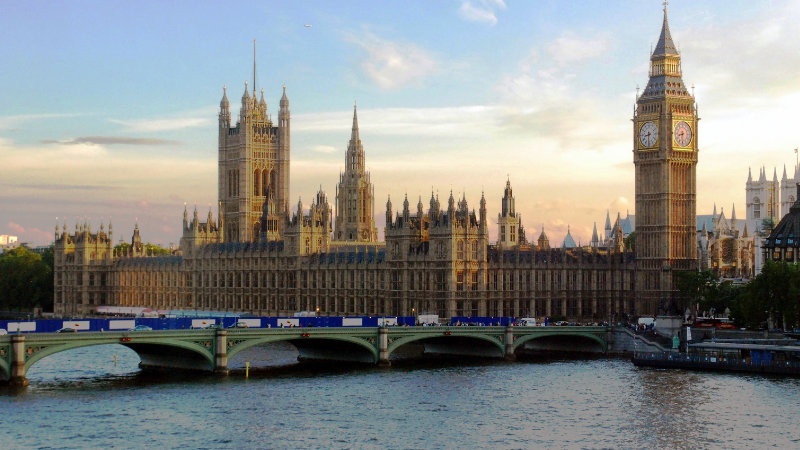An inquiry initiated by the UK’s Foreign Affairs Committee, seeking to better understand global flows of dirty money, includes an analysis calling out Malta as a jurisdiction ‘of particular concern’.
Dozens of documents were submitted as written evidence in the ongoing inquiry following a call for evidence by the Committee. The submission that refers to Malta, authored by the CEO of an international trade law and economic policy think-tank that played a key role in advising the UK government in its Brexit negotiations with the EU, calls out Malta over its role as a “known destination for Russian funds”.
“We are particularly concerned, especially in light of the invasion of Ukraine by Russia, and the resultant sanctions by the UK, EU and US, about illicit flows of funds into Malta, as well as Malta’s track record on the protection of property rights, and investor protection,” the report states.
Authored by Competere CEO and free trade advocate Shanker Singham, the report zeroes in on Malta’s relationship with the Russian Federation and cites three examples in which contracts funded by taxpayers were violated, leading to doubts about how well investors would be protected in a country where such contracts are not respected.
“Right now, Malta, like other vulnerable (economic) nodes, is a chink that could be exploited unless it immediately takes all steps necessary to prove that it can be trusted to deliver the core elements of a successful economy, while at the same time attracting capital from like-minded countries and not from corrupt dictatorships such as Russia,” Singham writes.
Citing articles published by The Shift and Malta Today, the report refers to how Malta has been used a site for Russian funds and has become “the EU visa of choice for Russian oligarchs”, referring to how Andrey Turba, general-director of EU-sanctioned Russian oil transporter Transneft, bought a Maltese passport in 2020.
Singham also referred to reports indicating the possibility of Russian financing backing Maltese operations involved in fuel smuggling as well as reports of an EU-sanctioned Russian Railways subsidiary operating in Malta.
Singham also claims that it is “highly likely” that Malta’s “neutrality” stance towards the United States’ attempts at negotiating a Status of Forces Agreement (SOFA) was the result of “Russian and Chinese pressure”.
Besides Malta’s ties with the Russian Federation, including its reluctance to freeze the golden passport applications of Russian and Belarusian citizens, the report also takes the country to task over its violations on contracts funded by taxpayers.
The two major examples of this cited by Singham are the hospitals concession agreement originally signed between the government of Malta and Vitals Global Healthcare (the contract was later taken over by Steward Healthcare) and the €274 million contract behind the Saint Vincent de Paul residence.
Referring to the €4 billion concession which was described by Malta’s National Audit Office (NAO) as a vitiated contract that created “ideal grounds for Vitals Global Healthcare to capitalise on the government’s weaknesses”, Singham’s report outlines how the restructuring process of the contract was necessary “to correct the many deficiencies of the previous agreement”.
Singham believes that the lack of commitment to this restructuring process, which was drafted but never implemented, has “rendered the concession unimplementable by the respected international hospital operator who the government invited to take on the agreement”, adding that this has “inhibited the delivery of key health infrastructure to communities in Malta”.
While Singham seems to have missed out on the fact that Steward Healthcare’s top brass in Malta is composed of the same individuals who were at the helm of Vitals Global Healthcare, the point about how vitiated the concession process was remains a pertinent one.
Referring to the contract for the state-run Saint Vincent de Paul residence for the elderly, Singham refers to NAO findings which had shown that the state-run home and the department of contracts “acted in breach of legislative provisions” and broke public procurement regulations in the deal.
He also refers to the public-private partnership between the government of Malta and the Environmental Landscapes Consortium and how it was illegally renewed without a call by successive PL and PN administrations. The contract has changed hands for the first time in 20 years.
The UK has itself been criticised for its role in providing a safe haven for Russian money, with Politico reporting that Boris Johnson’s administration is keen to explain they have imposed sanctions against individuals and companies connected to Vladimir Putin but some within his own Party worry the government has left it too late.
With Russian troops now unleashing terror on Ukraine, the UK government is under pressure to show the world “Londongrad” is no longer a cosy place for dodgy billionaires to launder their money and their reputations via lavish properties and expensive schools for their children.














Is anyone here really amazed?
Good journalistic work from THE SHIFT TEAM as always.
It’s high time for ROBBER Abela to really work for Malta and for Europe.